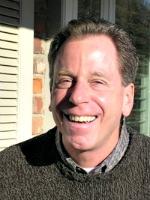 Organizers of the Winter Olympics are at the forefront of “green technology.” Fuel cell manufacturer Ballard Power Systems is located in Vancouver, B.C., which is also home to the northern terminus of the Hydrogen Highway running up North America’s West Coast.
Organizers of the Winter Olympics are at the forefront of “green technology.” Fuel cell manufacturer Ballard Power Systems is located in Vancouver, B.C., which is also home to the northern terminus of the Hydrogen Highway running up North America’s West Coast.
Twenty fuel cell buses are being operated by BC Transit in Whistler, site of many Olympic events. The buses are built by New Flyer Industries of Winnipeg and operate on fuel cells provided by Ballard Power Systems, with hydrogen storage provided by Dynetek Industries in Calgary.
The hybrid drive system came from ISE Corp. in San Diego, California. Each low floor bus can carry 60 people and has a top speed of about 55 mph. The buses are twice as efficient as diesel powered counterparts and have zero tailpipe emissions.
B.C. Transit’s new $89.5 million Whistler Transit Centre offers the world’s largest hydrogen refueling station. The station is a joint venture involving the Canadian and British Columbia governments, the Resort Municipality of Whistler, and the Canadian Hydrogen Fuel Cell Association.
A fleet of eight Chevrolet Equinox fuel cell SUVs are transporting Olympic officials, media, athletes, government representatives and others at the games. These Equinox models were built by General Motors Canada.
GM Canada is also providing environmentally friendly vehicles including several thousand fuel efficient Chevrolet, Buick, GMC, and Cadillac sedans, passenger vans, and SUVs.
Article Last Updated: February 14, 2010.

